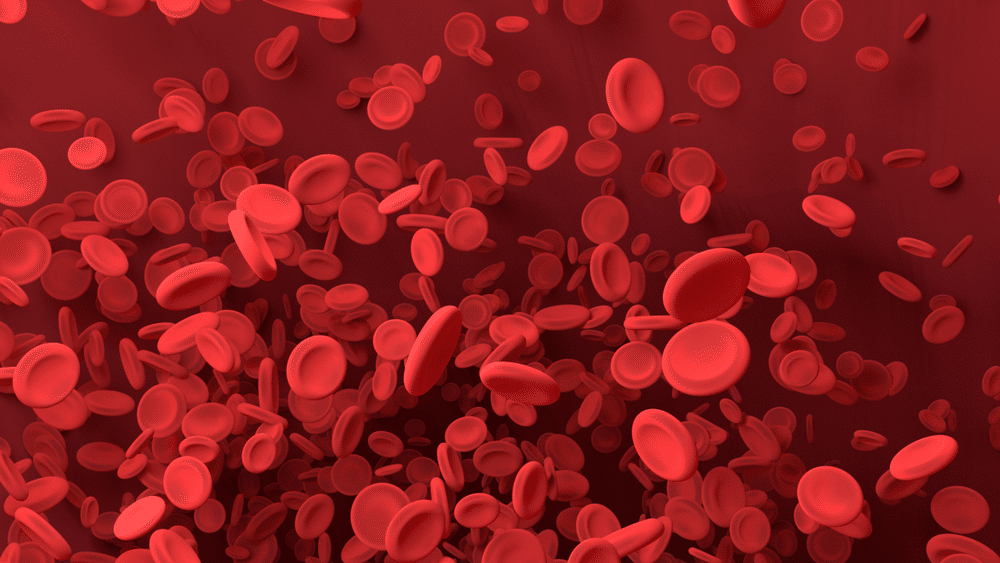Are Blood Clots Normal During Periods: Menstrual clots are a mixture of blood cells, mucus, tissue from the lining of the uterus, and proteins in the blood that helps to regulate its flow. Menstrual clots are part of the menstrual cycle and it is very normal. They come like clumps, chunks, or jelly-like consistency and can vary in size and number.
As the uterus sheds its lining, this tissue leaves the body as a natural part of the menstrual cycle. These blood clots are more common during the first 2 days of menstruation, which is the heaviest part of a period, Thus it gradually decreases.

The frequency of this clot may vary from month to month. Sometimes it may be heavy and the other time it is very normal. But if the size and frequency of blood clots are too much. It is better to consult a doctor.
It’s a good idea for a lady to get checked out if her periods last longer than a week or she struggles with extreme pain with her periods. At times it is the result of hormonal changes or hormonal imbalance.
Are Blood Clots Normal During Periods: lets us know the reason behind the blood clots. They prevent too much blood from escaping from the body.
COLOR OF THE CLOT

It is generally observed that the color of a blood clot may change. Sometimes it’s bright red in color, darker, deeper red, brown. The menstrual blood may get darker or turn more brown towards the end of each menstrual cycle as the blood gets older.
WHEN DOES IT HAPPENS
Clots occur when the uterus lining increased the shed of blood. In the vagina, the blood coagulates like that of any normal open skin wound. One may experience heavy clots in one month and lighter in the other. You should not worry about it. As this is too normal, it happens due to various factors of dieting habits and other lifestyle factors.
CAUSES OF MENSTRUAL CLOT

During periods, the endometrial cells that line the uterus strip away and leave the body. After this process, the body releases proteins that cause blood coagulation in the uterus. Blood coagulation prevents the blood vessels in the uterine lining from continuous bleeding.
When the flow is heavy, the coagulation protein within the body starts to clump together, which results in a menstrual clot.
Physical and hormonal factors can affect the menstrual cycle and can cause heavy flow.
Conditions that may cause abnormal blood clots

1. ENDOMETRIOSIS
A disorder in which tissues that normally lines the uterus grow outside the uterus. Due to endometriosis, the tissue can be found in the ovaries, Fallopian tubes, or intestines. Endometriosis can cause pain – sometimes severe and fertility problems may also develop.
Symptoms:
- Painful periods – pelvic pain and cramping may begin before periods and may last for several days after it.
- Excessive bleeding – occasionally heavy menstrual bleeding.
- Infertility – is usually diagnosed in patients of infertility.
- Pain with urination – one such symptom of endometriosis.
- Pain in intercourse – pain during or after intercourse is common with endometriosis.
2. HORMONAL IMBALANCES
An imbalance in female hormones, estrogen, and progesterone can cause irregularities in the menstrual cycle. However, the actual mechanisms of hormones secretion in our bodies are complex. This involves the interaction of three organs: the hypothalamus, the pituitary gland, and the ovaries. A problem with any of these will immediately affect menstruation and menstrual clots.
3. PREGNANCY LOSS
During a miscarriage or a pregnancy loss, a person will have a number of large menstrual clots. The menstrual clots depend upon the stage of pregnancy. At the initial stage, the frequency may be a bit abnormal but at the later stages of pregnancy, the clots may be larger in number and size. This may cause much pain to the person suffering from it.
4. BLEEDING DISORDERS
Disorders as platelets function disorder or Von Willebrand’s disease (VWD) may cause abnormal heavy menstruation that may result in heavy menstrual clots. It is mostly bleeding disorders are solely responsible, as they affect the coagulated proteins that the uterine lining needs to stop menstrual bleeding.
5. ADENOMYOSIS
Adenomyosis is a type of problem in which the uterine lining grows into the muscular uterus wall. It is the diffuse thickening of the uterus that generally occurs when the tissue that lines the uterus (endometrium) moves into the muscular outer wall and acts as endometrium. When the above process is localized to a small area, It is known as Adenomyosis.
Due to which the endometrial lining and uterine wall become much thicker, leading to much heavier flow during menstruation. So the blood clots can be more likely seen during the periods.
6. ENLARGED UTERUS
Pregnancy is the potential reason for an enlarged uterus. From conception to delivery, a woman’s uterus can grow from the size of a pear to a watermelon. After pregnancy, the uterus increases or changes in size than it was before the pregnancy. It can be due to structural changes that occur in the body of women due to pregnancy, it may be due to fibroid.
As the size of the uterus increases now there is extra space for blood to pool. This leads to further clotting before it exits the body.
Symptoms:
- Irregular bleeding
- Heavy periods
- Pressure in the lower abdomen
- Pain in intercourse
7. FIBROIDS
Fibroids are an abnormal growth of muscle tissue that forms in or on the wall of the uterus. Fibroid consists of either endometrial or muscular tissue that grows in the uterus. These muscular tissues lead to blockage in the uterus, it restricts it from normal contraction as it should. So it cannot force the blood to move out quickly from the body.
The longer the blood pool in the uterus the number of clubs are formed in the blood. This leads to more menstrual clots during the periods. They are more common during the reproductive years.
Symptoms:
- Fertility issues
- Feeling bloated
- Pelvic pain
- Pain during sex
8. ANEMIA
Women suffering from heavy bleeding during periods may have a higher risk of iron deficiency that causes anemia. It is a common health condition characterized by less number red blood cell counts.
Anemia occurs due to lesser or lower numbers of red blood cells in the body than usual. As the body needs iron to make new healthy cells, it produces hemoglobin. A low iron level can be harmful. It leads to heavy periods which ultimately leads to more blood clots or menstrual clots.
Symptoms:
- Weakness
- General fatigue
- Shortness of breath
- Pale skin
WHEN TO CONSULT A DOCTOR

When to see a doctor, one important question that comes to your mind. When we talk about heavy menstrual bleeding or blood clots is when to see your doctor When the clot size is larger than a quarter they are more frequently visible than it’s time to consult your doctors.
Menstrual bleeding is considered heavy if you need to change pads or tampons for two or fewer hours.
When you have periods that last more than 5-7 days. Someone who has regular cycles but also experiences a mid-cycle.
The amount of blood flow ranges from one woman to another and may vary from one month to another month. But a woman who experiences a change to excessive heavy periods occurring for more than three months should definitely see a doctor.
TREATMENTS OF MENSTRAUL CLOTS

ARE BLOOD CLOTS NORMAL DURING PERIODS: The best possible way to control heavy menstrual clots is by controlling heavy menstrual bleeding.
Uterine artery embolization
This is used to treat fibroids. In this treatment, the blood vessels to the uterus are blocked, which stops the blood flow that allows fibroids to grow.
Myomectomy
Myomectomy is surgery to remove fibroids without removing the uterus.
Hysterectomy
It is a surgery for the removal of the uterus. Hysterectomy is used to treat fibroids and adenomyosis when other types of treatment have failed or are not an option. It is also used to treat endometrial cancer. After the uterus is removed, women can no longer get pregnant and will no longer have periods.
Endometrial ablation
A minor surgical procedure in which the lining of the uterus is destroyed to stop or reduce menstrual bleeding
Are Blood Clots Normal During Periods: I think after reading the blog you got your entire list of questions now answered. You have ended with questions comment below the question.





One Comment
Pingback:
August 26, 2021 at 2:50 pm